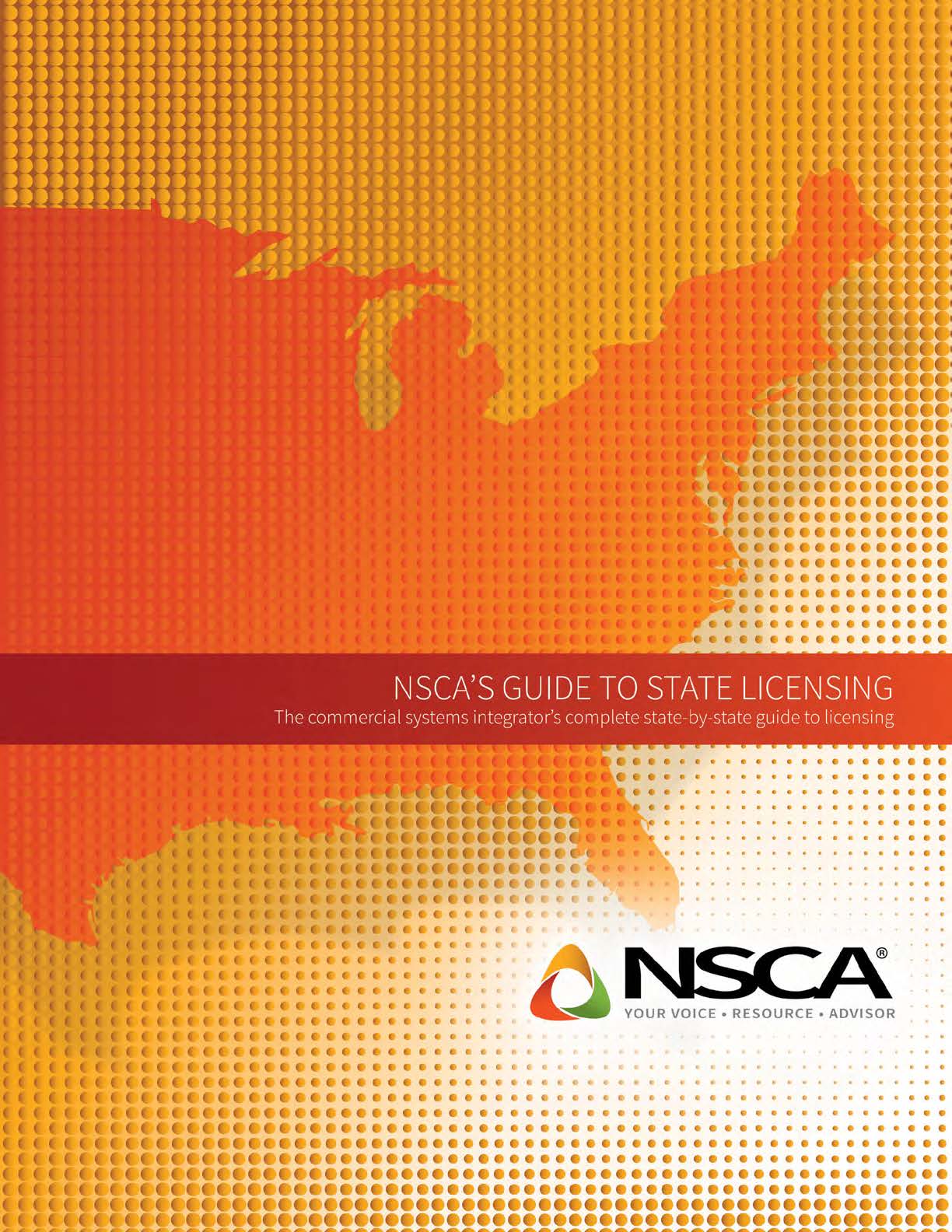
Updated in Fall 2023, the Guide to State Licensing provides the commercial integration industry with a reference guide of state laws governing the installation of low-voltage systems

The work of an electrician is governed by a series of standards and regulations—including licensing. The National Electrical Code (NEC) serves as the basis for licensing from state to state. It acts as a consistently updated foundation for electrical safety in residential, commercial, and industrial buildings.
The same can’t be said for the work of a systems integrator. Licensing in this industry is confusing, to say the least. Laws vary from state to state (and sometimes vary even within the same state). In some cases, there may be no statewide licensing requirements for low-voltage systems. In some states, you may need a license to do fire alarm system work but not digital signage work; in other states, however, fire alarm systems may be the only type of low-voltage system where a license is required.
“Just because you have a business license and contractor’s license in a particular state or county, you aren’t cleared of all the hurdles that can be put in place by municipalities, cities, counties, and states,” says Eric Jones, vice president of operations at SWC. “The requirements for low-voltage licensing range from nothing to requiring a full electrical contractor’s license.”
Before you do any work, it’s critical to check the state (and the specific county or city) in which you’ve got a project scheduled to make sure you meet the requirements.
NSCA’s Guide to State Licensing
To help you keep it all straight, NSCA maintains a resource that can help: our Guide to State Licensing. Updated in Fall 2023, it provides the commercial integration industry with a reference guide of state laws governing the installation of low-voltage systems.
“This resource is particularly important for companies with footprints across multiple states, and those close to a border,” says Eric Jones, vice president of operations at SWC, which relies on the Guide to State Licensing to check all local requirements prior to bidding work in a new region.
For each state, the Guide to State Licensing covers:
- Alarm system requirements
- Electrical contractor/electrician requirements
- Low-voltage/limited-energy requirements
- Approved reciprocal states
- Other contractor license requirements (GC, etc.)
- License types and associated fees
- Which version of the NEC the state follows
- Relevant state contact information
“The Guide to State Licensing does an invaluable job of identifying which states accept reciprocity,” says Larry Simmons, senior vice president of corporate governance at Tech Systems Inc. “It is then up to the integrator to determine which license they provide reciprocity for, as license types vary greatly from state to state.”
The information presented in this guide now reflects changes in state and administrative statutes through October 2023. The guide also offers a one-page quick reference sheet at the back of the document that outlines requirements for electrical/contractor, low-voltage, or alarm/security system work in each state.
“The Guide to State Licensing is an invaluable resource for systems integrators,” says Simmons. “There a very few guides like this, past or present. NSCA takes identification a step further by stating the various kinds of licensing that are required. It has saved us a tremendous amount of time when trying to determine who in the state to contact and what their license requirements are.”






